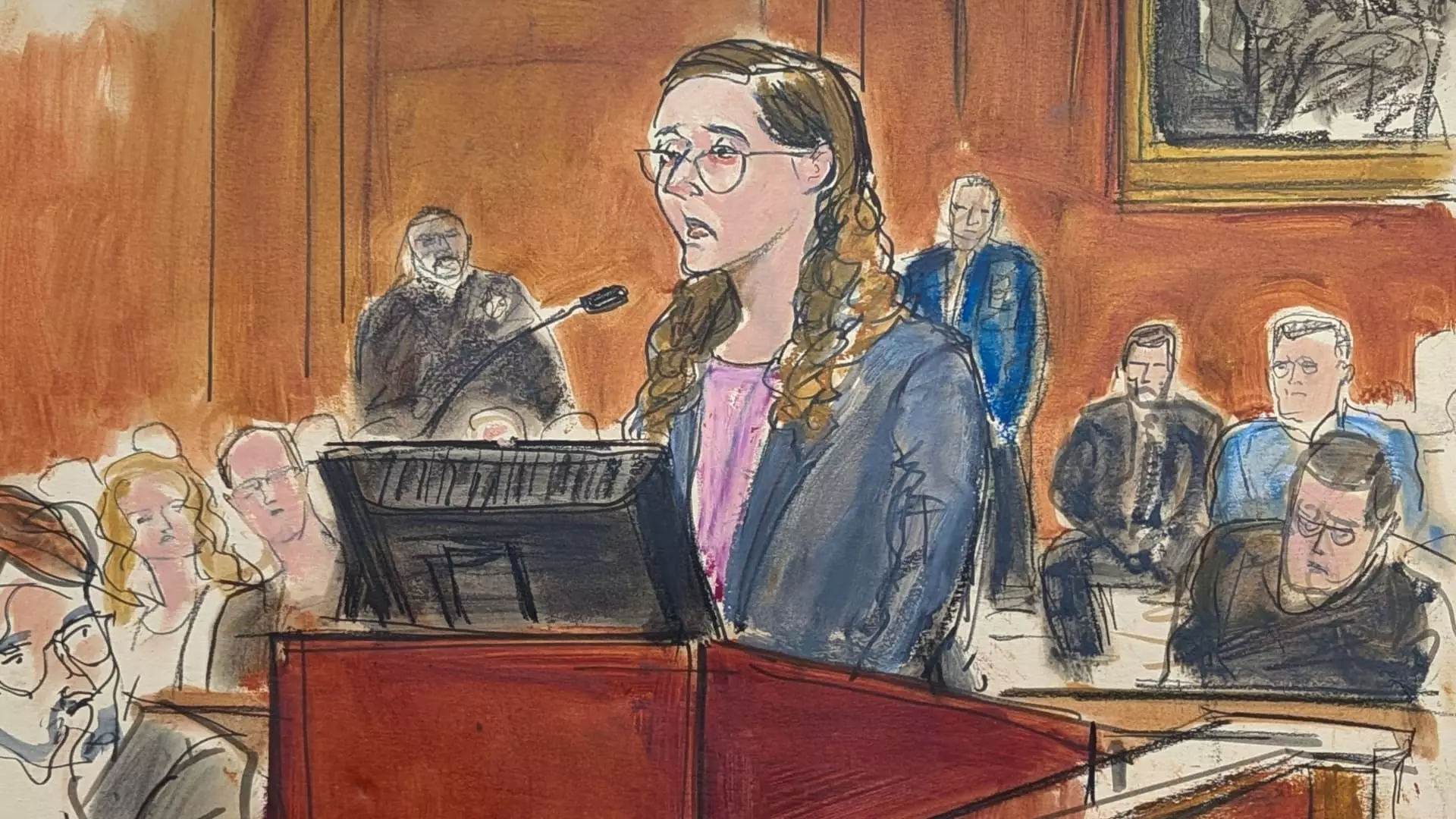The collapse of FTX, once a titan in the cryptocurrency arena valued at an astounding $32 billion, serves as a dramatic backdrop to a story of fraud, betrayal, and the complex interplay between cooperation and punishment in legal proceedings. Central to this narrative is Caroline Ellison, the former CEO of Alameda Research and a significant figure in the now-defunct crypto exchange’s operational misconduct. Her recent sentencing in federal court highlights not only her role in the massive financial fraud but also raises critical questions about accountability in corporate governance and the consequences of unethical behavior.
On Tuesday, Ellison was sentenced to two years in prison, along with an order to forfeit a staggering $11 billion. This ruling was notably harsher than the recommendation from the federal Probation Department, which had suggested a stricter form of supervised release without imprisonment. This discrepancy in sentences reveals a judiciary intent on establishing a precedent that underscores both the severity of Ellison’s actions and the broader implications for the financial industry at large.
Ellison’s decision to cooperate with prosecutors set her apart in the courtroom drama surrounding the FTX scandal. While she ultimately admitted her role in the conspiracy and committed to assisting the legal process, her plea for leniency was met with mixed signals from the presiding Judge Lewis Kaplan. While acknowledging her cooperation—praising it for significantly contributing to the conviction of her former boyfriend Sam Bankman-Fried—Kaplan simultaneously asserted the need for a deterrent sentence. This dual narrative raises important questions about the balance of justice: Is cooperation enough to mitigate the fallout from one’s criminal actions?
In Kaplan’s remarks, he indicated that the FTX case represents perhaps the most egregious financial fraud in U.S. history, underscoring the need for a response aimed at deterring future malfeasance. Interestingly, he highlighted what seemed to be a unique aspect of Ellison’s cooperation, describing it as uncommonly thorough and emotionally costly for her personally. This characterization raises the stakes for other potential white-collar criminals weighing the benefits of compliance against the risks of accountability.
Emotions ran high in the courtroom as Ellison, in a moment of intense vulnerability, expressed her deep shame and remorse. Her tears and shaky voice while reading her statement served as a poignant reminder of the human element often overlooked in discussions of financial fraud. Despite the significant losses incurred by victims of the FTX debacle, her apology suggested a grappling with personal responsibility that many in her position may seek to evade. This revelation poses a broader question: can heartfelt remorse outweigh the objective harm caused by one’s actions, especially in financial crime?
Ellison’s candid acknowledgment of her failure to extricate herself from Bankman-Fried’s influence poignantly illustrates the psychological complexities often at play in corporate wrongdoing. It prompts us to consider the systemic issues that allow such moral transgressions to thrive. The culture within firms like FTX may create environments where ethical breaches are normalized, illustrating the urgent need for enhanced ethical training and robust systems of accountability in financial organizations.
Ellison’s sentencing does not exist in a vacuum; it is part of a broader dialogue regarding the ethical responsibilities of leaders in the financial sector. The financial community is left grappling with the aftermath of FTX’s failure and the consequences for its principals. As Ellison’s case illustrates, cooperation with authorities is not merely a means of self-preservation; it is a cornerstone in the pursuit of justice against corporate malfeasance. However, the mixed results of such cooperation, as evidenced by the contrasting fates of Ellison and Bankman-Fried, introduce a crucial factor into discussions around accountability.
As we assess the fallout from the FTX scandal, including the future sentencing of other executives involved, the legal landscape surrounding financial misconduct will likely evolve. The high-profile nature of these cases sends a clear message: there are significant repercussions for those who engage in fraud, regardless of their later attempts to assist in rectifying the damage. The challenge lies in ensuring that the lessons learned from FTX resonate deeply within the industry, eliminating the temptations of deceit and fostering a culture of transparency.
Caroline Ellison’s case underscores not only the severe personal repercussions of participating in large-scale fraud but also the necessity for systemic reform in corporate governance. As the financial world continues to absorb the lessons of FTX, the need for ethical conduct and accountability has never been more urgent.

